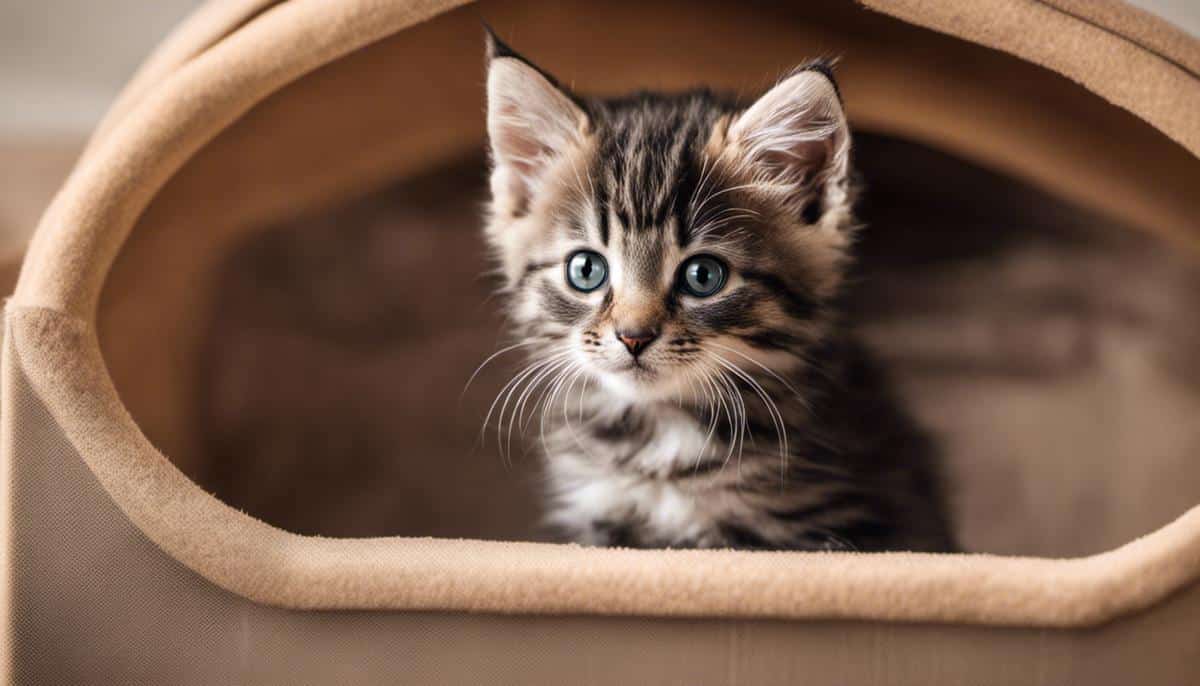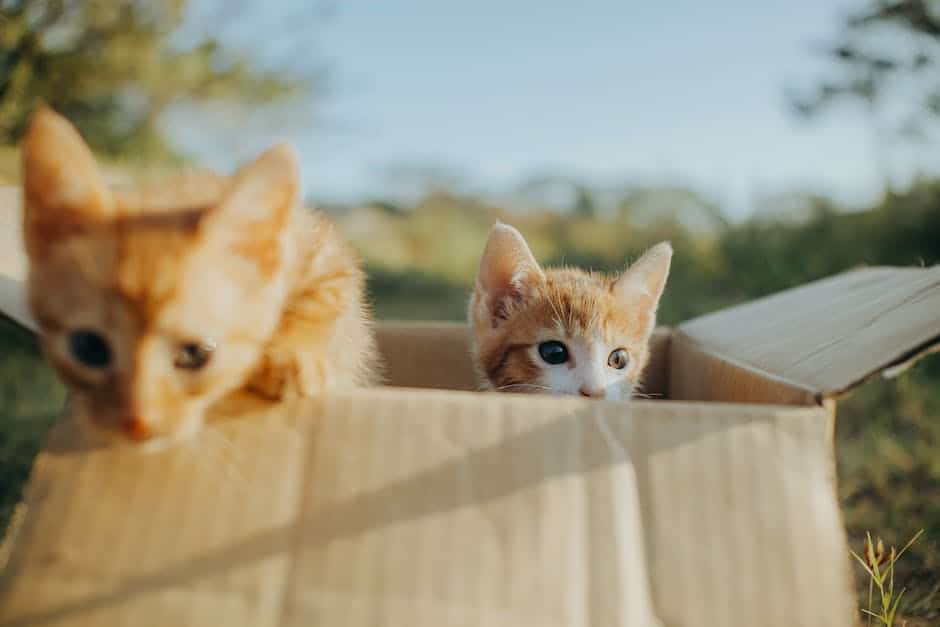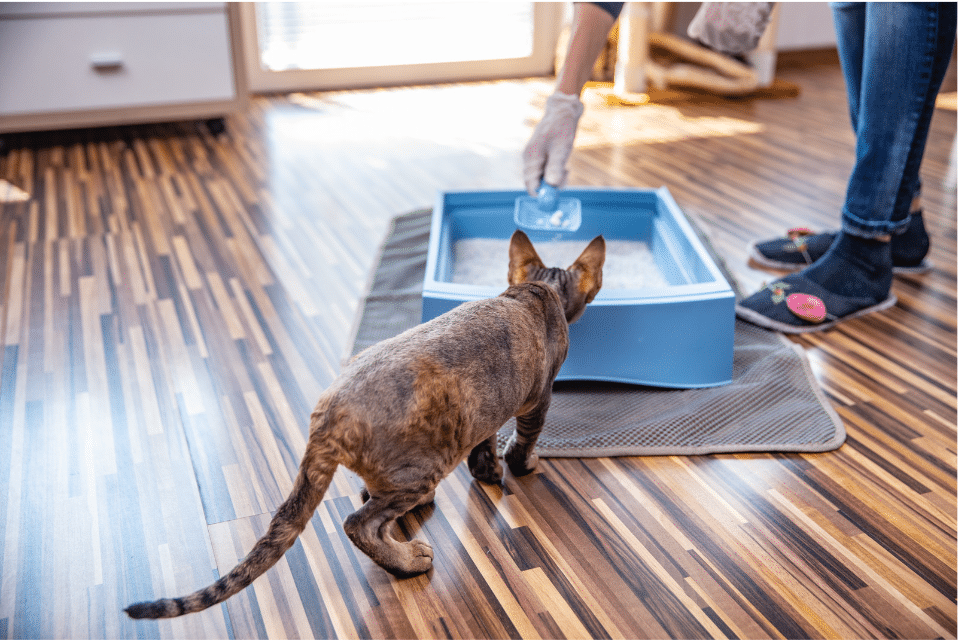
Ensuring a mutually fulfilling relationship between a pet and its owner often begins with something as fundamental as training a kitten to use a litter box. Understanding the core of litter box training, its importance, techniques, and methodologies is quintessential in shaping a kitten’s habits and contributes significantly to maintaining a serene household environment.
Becoming well-versed in how to implement effective litter box training techniques can be the first crucial step in this insightful journey toward raising a happy, well-trained feline companion. This comprehensive guide aids you in understanding litter box training from scratch, presents practical teaching methods, provides assistance in overcoming potential challenges, and offers tips to sustain the training for a lifetime.
Understanding Litter Box Training
The Inside Scoop on Litter Box Training for Kittens: All You Need to Know
Oh, the joy of welcoming a fuzzball of a kitten into your house, right? There’s no doubt – this little bundle of joy is perfect in every way, from the tips of its tiny toes to the end of its delightful tail. But hold on a second! A new kitten also means a handful of new responsibilities, and litter box training is one of the most crucial ones.
Now, darling reader, newbies to the world of cat parenting might ask, “Isn’t using a litter box instinctual for kittens?” While it’s true that cats have an innate instinct to dig and bury, some kittens might need a nudge in the right direction to cultivate this instinct.
Basically, litter box training means teaching your kitten to do its business in the designated area, the litter box. Pretty straightforward, isn’t it? However, there’s a knack to it.
So why bother? The answer is simple: To avoid hiccups in your household that accompany a free-roaming kitten with no bathroom manners! An untrained kitten might relieve itself on carpets, clothing, or furniture — objects that are decidedly not a litter box. Not quite the sight or smell one relishes at home, right?
Starting off, what’s better than a wisely chosen litter box? One that’s easy to get into and of the right size can give your tiny furball confidence. Putting it in a private yet accessible location is also crucial.
Once the perfect spot is fixed, introduce your kitten to it. Gently place them in the litter box after meals, play sessions, or long naps since those are typically their go-to times to eliminate. Remember not to rush or force, just let your little fur baby sniff around and get comfortable with the surroundings.
The type of litter matters too. Using unscented, clumping litter is ideal as kittens might try to eat the litter, and clumping litter is generally safer if ingested. On the other hand, scented litters might be too overpowering for their sensitive little noses.
Another key to the litterbox conundrum? Patience. Kittens are still learning and there’s bound to be a few accidents along the way. Cleaning up promptly and without fuss shows your kitten that elimination should be confined to the litter box.
Be sure to give plenty of praise and positive reinforcement when your kitten successfully uses the litter box! A cuddle, a sweet word, or a treat goes a long way.
In cases where the kitten refuses to use the litter box, it’s a good idea to consult a vet. There could be underlying health issues that need to be addressed.
Finally, let’s not forget the importance of regular cleaning. Keeping the box fresh and inviting helps your kitten from picking up bad habits.
Litter box training might sound like a daunting task but remember, every step you take leads you to a well-adjusted little cat with good bathroom habits. It’s not just about saving your precious rugs and furniture, but also ensuring the hygiene and health of your furry family member. Talk about hitting two birds with one stone! So, dear reader, roll up your sleeves and embrace the journey of cat parenting full-on. After all, there’s no bigger joy than a happy, well-mannered kitten, right?

Implementing Effective Litter Box Training Techniques
Mastering the Art of Litter Box Training: Techniques for New Kitten Parents
Transitioning a kitten to box training can seem daunting. It’s a significant milestone in the world of cat ownership. Whether you’ve been a cat parent for a while, or else welcoming a new feline family member, you’ve probably asked yourself how to go about this process successfully. This article aims to help ease your kitten into a routine, making use of simple, effective techniques that can make a world of difference in helping your fur baby quickly adapt to using a litter box.
One of the first steps you’ll want to consider is the location of the litter box. Cats prefer quiet, serene areas to do their business – think low-traffic zones. Place the litter box in an area with minimal noise, away from their sleeping and feeding areas. Disturbances can deter your kitten from using the box.
Another effective technique involves timing. The secret to success is in understanding a kitten’s digestive system. Kittens are most likely to use the litter box after meals, playtime, and waking up from naps. For the first few weeks, try to gently carry your kitten to the litter box during these times. This builds an association in your kitten’s mind, linking the litter box to the expected behavior.
Now, every kitten has a unique personality, but what most of them have in common is their keen sense of curiosity. Capitalizing on this can make the learning process smoother. The technique? Hide fun toys in and around their litter box to instill a positive association and curiosity.
Another technique you definitely want to employ is praise. Each time your kitten uses the litter box correctly, make sure to reinforce their behavior with gentle words of affirmation or even a healthy treat. Counterintuitively, do not punish your kitten for accidents. Rather, clean up the mess promptly and completely, for lingering scents may encourage your fur baby to repeat the mistake.
It’s worth noting that every kitten has different paces of learning, and that’s entirely okay. The secret lies in perseverance. Don’t be disheartened if it takes some time for your kitten to adapt. Think of it this way: every tiny feline stride towards proper litter box habits is a great accomplishment – both for you as their caring parent and for them as they grow and learn to navigate their new home.
Lastly, always remember to maintain a dialogue with your kitten’s vet. Should there be any persistent challenges, immediately addressing the issues will make things easier for your furball and yourself in the long run. This essential connection ensures your little one gets the utmost care in all aspects of their life, including litter box training.
In a nutshell, the journey to litter box mastery can be full of unexpected twists and turns. But with patience, love, and the right techniques, every kitten can become a litter box pro. Remember that lots of love and consistency are the real keys, and before you know it, these techniques will have your kitten going about their business exactly where they should. Enjoy every moment of this learning journey with your fur baby because, like all phases, this too will pass all too quickly!

Addressing and Overcoming Litter Box Training Challenges
Understanding and Addressing Litter Box Training Challenges
Keeping a pet, especially a kitten, is like adding a new member to your family. While it wakes up our nurturing side, it also invites many responsibilities. One such responsibility is training the kitten to use a litter box, which, though crucial, is quite a task. If you have been following our previous articles, you would be aware of the fundamental aspects of it. So, to complement them, today let’s discuss some of the common problems one might face during litter box training and how to address them.
- Unexpected Mishaps: Despite their best attempts, our little whiskered friends might not always make it to the litter box on time. This could be due to having only one litter box for more than one kitten or a location challenging for a kitten to access. Remedy this situation by having one litter box per kitten plus an extra one, and place them in easily accessible spots within your home.
- Refusing to Use the Litter Box: Kittens, like humans, also have a sense of likes and dislikes. A major reason for a kitten to ignore the litter box could be its aversion to a particular type of litter. Try switching to unscented or different textured litter, and observe if the kitten’s behavior changes.
- Overaggressive Digging: Kittens might start to playfully dig and scatter litter everywhere. It’s not that they’re feeling malicious; they’re likely captivated by making a mess! Try adding a litter box with high sides or a litter box enclosure to minimize the mess created.
- Presence of Other Cats: Cats are territorial creatures. If more than one cat is in the house, the kitten might feel threatened or off-put by the older cat’s smell in the box. Maintaining separate litter boxes for each cat can encourage use and help alleviate this issue.
- Medical Issues: Sometimes, the neglect or improper use of a litter box can signal health issues. A kitten may start to associate the litter box with distressing urinary pain and avoid using it altogether. In such cases, never dismiss your gut feeling and immediately consult with a vet.
- Aging Kittens: Just like humans, kittens may start to experience joint pains as they age. Climbing into a litter box with high sides may become a painful struggle for them. Switch to a litter box with low entry points to facilitate easy access for your aging feline.
- Inconsistent Training: Consistency is key to litter box training. A less systematic training routine can confuse kittens and lead to mishaps. Therefore, stick to a regular schedule and keep repeating the training until your kitten has fully understood and adapted to it.
Remember, every challenge has a solution. With patience, love, and commitment, you can navigate through these issues to help your kitten become an expert in litter box usage. Your efforts today will pave the way for a hassle-free tomorrow. So, may your journey of kitten parenthood be liberally sprinkled with joy, laughter, and some much-deserved, bright-eyed, furry cuddles.

Sustaining Litter Box Training
Continuing litter box training in the long term requires both a knowledgeable and committed approach. The journey might be a bit rough at times but worry not, the following solutions to various common issues might be just what’s needed to get across the finish line!
Investing in Multiple Litter Boxes: Sometimes, even when everything else is in place, cats might decline to use a litter box due to territorial tendencies. This is common if there are multiple cats in the home. Instead of forcing them to share one, consider providing each cat with a litter box. As a general rule, the number of litter boxes in the home should be one more than the number of cats.
Selection of Litter: Cats are particular when it comes to their litter – much like we are with our bathrooms! If the kitten shies away from using the litter box, it might be time to reconsider the type of litter being used. From unscented to scented and clay to biodegradable, there is a vast selection of cat litter to experiment with.
Taking Care of the Overzealous Diggers: Some kittens might take to digging in the litter box more vigorously than others, resulting in a mess to clean up. A solution to this issue could be to use a litter box with high sides or an enclosure that will confine the litter to the box itself.
Respecting Their Privacy: Cats are independent creatures and value their privacy. Ensuring that the litter box is in a quiet, low-traffic area can make a significant difference to a reluctant litter box user.
Addressing Medical Issues: If a well-trained kitten suddenly starts neglecting or misusing the litter box, it could indicate a health issue. Consulting with a vet as soon as possible is crucial in such cases. A cat might associate discomfort with the litter box and avoid it, resulting in poor habits that can last long after recovery if not managed.
Catering to Aging Kittens: As kittens grow older, certain physical changes might make it challenging for them to use the litter box. Making modifications such as providing a litter box with low entry points can make it easier for older or arthritic cats to access.
Consistent Training: Lastly, adhering to a regular training schedule is still vital even after the cat has learned to use the litter box. Cats are creatures of habit, and deviating from the routine might disrupt the training.
In conclusion, remember that every cat has different preferences, quirks, and challenges when it comes to litter box habits. Keeping these factors in mind, coupled with abundant patience and consistency, can ensure the success of litter box training in the long run. Navigating this process can sometimes be as tricky as herding cats, but the reward of a clean home and a happy, confident kitten more than pays off in the end!
Finally, keep the lines of communication open with your vet because they can provide professional advice tailored specifically to your furry little friend. So, stay committed to the process, and before you know it, your kitten will be an expert in navigating the litter box!

Throughout the life of your kitten, the importance of litter box training remains paramount. Even after successful training, consistency is key, and integrating the training into your kitten’s routine significantly influences its behavior. The goal is to nurture a sustainable practice that benefits both the pet and the owner. Overcoming challenges that arise during the process can also be a satisfying learning experience. By instituting a positive approach, and appropriately rewarding good behavior, the foundations are set for a harmonious home living environment. The steps taken today can profoundly impact the health, happiness, and overall well-being of your cherished feline companion in the years to come.
Legal Disclaimer
This blog post is intended for informational purposes and should not be considered as a substitute for professional veterinary advice. Consult your veterinarian for any health-related concerns about your pet.





